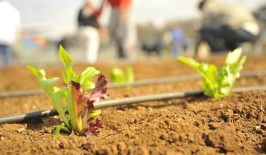It is the majestic Baobab tree – otherwise known as the ‘monkey bread’ tree, the ‘upside-down’ tree, ‘the tree of life’, or Adansonia Digitata – and its remarkable properties have been appreciated for hundreds of years by the people of the regions in which it grows.
Typical of the savannah regions of Africa, Madagascar, Western Australia and the Arabian Peninsula, Baobabs can reach the ripe old age of 3000 years, a height of 25 metre, and an impressive circumference sometimes over 25 metres.
It has been used by local populations for the medicinal properties of its leaves, its highly nutritious fruits and for its fibre-rich bark, used in making cloth and rope. The water storing properties of its trunk, which can hold up to 100,000 litres of rainwater, are also a lifeline for people and animals during the dry season. On top of all these vital functions, Baobab trees have also been serving an important social function as a point where community meetings are held, and disputes resolved, under their branches. And as the tree matures, its trunk hollows out, providing shelter for wildlife. Indeed hollow Baobab trunks have been used also as bars and even as prisons.
So, as if the above wasn’t enough, what’s the hype all about?
Well it turns out that the Baobab fruit does not just taste delicious (like strawberry sherbet for some, or a mix between pear, vanilla and grapefruit for others), but it also contains more calcium than milk, more potassium than a banana, more vitamin C than oranges, more magnesium than spinach and more iron than red meat. As nutritional properties go, it is hard to beat.
Ideal for use in juices and smoothies, nutrition bars, baked goods as well as cosmetics, the Baobab fruit is a manufacturer’s dream. Thanks to its powdery pulp, which dries naturally while the fruit is still on the branch, it can be easily ground and packaged. And its high pectin content also make the fruit a natural thickening and binding agent.
Its promise is not just to help fight the free radicals and slow down the wrinkles of Western consumers, but more importantly it can offer real development opportunities for rural families in the drylands which are its natural habitat. In regions prone to droughts, poverty, malnutrition and hunger the tree offers instant nutritional value, as well as longer term commercial opportunities through the processing and sale of its fruits, bark and leaves.
A number of organisations are at work to ensure that Baobab trees are preserved, sustainably harvested, and that they continue to serve local communities. Amongst them, PhytoTrade Africa supports the commercial development of species that can be naturally and sustainably harvested, such as the Baobab.
The Centre for International Forestry Research promotes measures to support local knowledge in the identification and protection of high-yielding Baobab’s varieties and seeks to ensure that the returns from Baobab fruit processing and sale benefit local economies.
TreeAid supports land ownership rights for small holders so that they are able to access, benefit from, and preserve the Baobab trees.
And recently, social-enterprise and health and beauty brand Aduna, received 100,000 prize GBP, from the Virgin ‘Pitch to Rich’ award, for its ‘Make Baobab Famous’ campaign to help create demand in the West for Baobab products, thus generating income for small producers in Africa. With only a small percentage of Baobab fruit currently either being consumed locally or exported, Aduna seeks to reduce the huge amount of Baobab fruit currently going to waste, and to get rural women in Africa to reap the benefits in the process. You can see Aduna’s winning pitch here.
It is obvious that regardless of Western consumers’ penchant for beautiful skin, this tree’s properties and functions are too many and too valuable to let it be turned into just another commodity. The organisations above seem to have their finger on the pulse in ensuring that this phenomenal resource is used sustainably and preserved for the benefits of those who need it the most.
PhytoTrade Africa have made this video about the Baobab:









